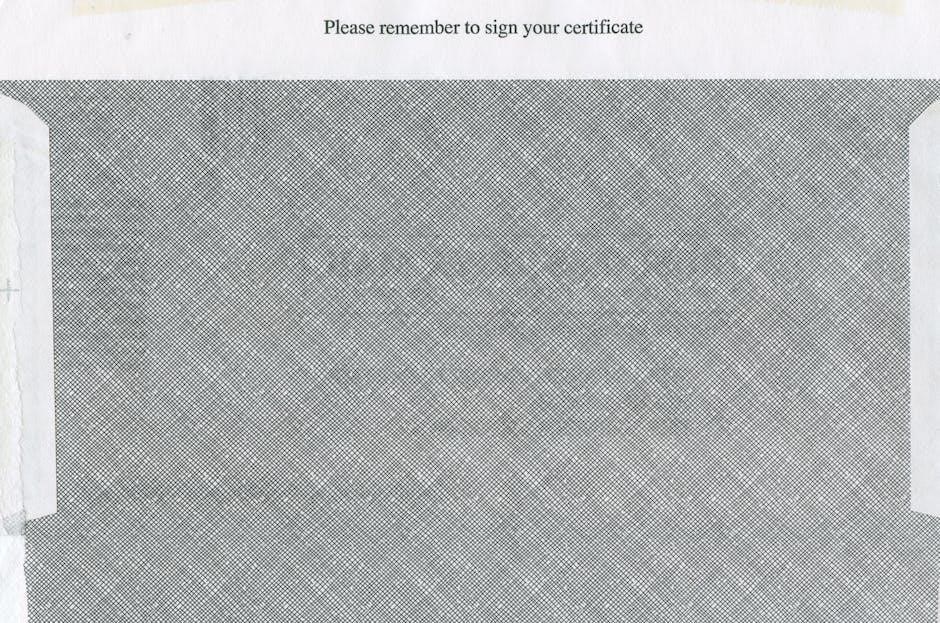Instructional coach certification is a professional development opportunity enabling educators to support teachers in improving instructional practices, fostering student success, and enhancing educational outcomes through targeted coaching strategies.

Definition of an Instructional Coach
An instructional coach is an educator who works collaboratively with teachers to enhance teaching practices, improve student outcomes, and foster professional growth. They provide targeted support through coaching conversations, data-driven strategies, and evidence-based practices. Instructional coaches focus on helping teachers refine their instructional techniques, integrate technology, and address diverse student needs. They often serve as mentors, facilitating professional development and encouraging reflective practices. Their role emphasizes equity-centered coaching, ensuring all students receive high-quality instruction. By building teacher capacity, instructional coaches contribute to a culture of continuous improvement in schools. They work closely with educators to align teaching methods with curriculum goals, ultimately aiming to create impactful learning environments that benefit both teachers and students alike.

Importance of Instructional Coach Certification
Instructional coach certification is essential for enhancing teaching effectiveness, improving student outcomes, and providing educators with evidence-based strategies to support professional growth and instructional excellence in schools.
3.1 Improving Teacher Effectiveness
Instructional coach certification equips educators with the skills to enhance teacher effectiveness through targeted coaching strategies. Coaches learn to facilitate productive coaching conversations, analyze data, and set actionable goals. By fostering collaborative relationships, instructional coaches help teachers refine their instructional practices, adopt innovative teaching methods, and integrate technology effectively. Programs like the University of Florida’s Lastinger Center and Harvard’s Graduate School of Education emphasize evidence-based approaches, enabling coaches to support teachers in improving classroom management, lesson planning, and student engagement. This professional development not only strengthens teaching skills but also creates a culture of continuous improvement, ultimately benefiting both educators and students. The certification ensures coaches are well-prepared to address diverse teaching needs and promote sustainable growth in educational settings.
3.2 Enhancing Student Outcomes
Instructional coach certification plays a pivotal role in enhancing student outcomes by equipping educators with strategies to improve teaching practices and create engaging learning environments. Coaches trained in programs like the University of Florida’s Lastinger Center and Google for Education Certified Coach initiatives focus on evidence-based methods that directly impact student performance. By supporting teachers in implementing innovative instructional techniques, coaches help students achieve higher academic success and better engagement. For instance, literacy coaching certifications emphasize improving reading and writing skills, while technology-focused programs enhance digital literacy and classroom integration. These efforts collectively contribute to measurable improvements in student achievement, fostering a more effective and impactful educational experience for all learners.

Types of Instructional Coach Certifications
Instructional coach certifications include K-12, literacy, and technology-focused options, each tailored to specific educational needs, ensuring coaches are equipped to support diverse teaching environments effectively.
4.1 K-12 Instructional Coaching Certification
The K-12 Instructional Coaching Certification is designed for educators aiming to support teachers across all grade levels. This certification focuses on developing skills to deliver high-impact, teacher-centered coaching. Participants learn strategies for goal setting, modeling best practices, and using data to improve instructional quality. The program often includes both theoretical knowledge and practical application, ensuring coaches can effectively collaborate with educators to enhance student outcomes. Many programs are offered online or in-person, providing flexibility for working professionals. Upon completion, coaches are equipped to lead professional development and foster a culture of continuous improvement in schools. This certification is a valuable asset for those seeking to make a meaningful impact on teaching and learning at all levels of education.
4.2 Literacy Coaching Certification
Literacy Coaching Certification is tailored for educators seeking to enhance teachers’ skills in literacy instruction. This specialized certification focuses on advancing knowledge of evidence-based literacy strategies and coaching techniques. Participants gain expertise in supporting teachers to improve reading and writing instruction, ultimately benefiting student literacy outcomes. Many programs, such as those offered by the University of Florida, emphasize job-embedded learning, allowing coaches to apply strategies in real-world settings. The certification often includes modules on data collection, goal setting, and modeling best practices. Coaches learn to facilitate impactful conversations that lead to improved teaching practices and student achievement. This certification is ideal for those passionate about fostering a love of reading and ensuring all students meet literacy standards. It equips coaches with tools to make a lasting impact on literacy education.
4.3 Technology-Focused Coaching Certification
Technology-Focused Coaching Certification equips instructional coaches with the skills to effectively integrate technology into classroom practices. This certification emphasizes research-backed strategies and tools to support educators in leveraging technology for enhanced instruction. Coaches learn how to facilitate the adoption of digital tools, promote personalized learning, and foster innovative teaching methods. Programs like Google for Education’s Certified Coach initiative provide coaches with resources to drive impactful technology use across schools. By earning this certification, coaches gain the ability to empower educators to transform instruction through technology, ultimately improving student engagement and academic outcomes. This specialized certification is ideal for coaches committed to advancing education through innovative, tech-driven approaches.

Process of Becoming Certified
Becoming a certified instructional coach involves completing educational requirements, enrolling in a certification program, and finishing a practicum. Many programs require a master’s degree or teaching experience. Candidates must complete coursework, often including modules on coaching strategies, data analysis, and equity-centered practices. A practicum or fieldwork component is essential, where coaches apply their skills in real educational settings. Some programs require video submissions of coaching sessions for evaluation. Certification programs can be completed online or in-person, with options for self-paced or cohort-based learning. The process typically takes several months to a year, depending on the program’s structure and requirements. Successful completion leads to certification, enhancing coaching effectiveness and professional credibility.
5.1 Educational Requirements
Earning an instructional coach certification typically requires a bachelor’s degree in education or a related field. Many programs prefer or require a master’s degree, particularly for advanced roles. Teaching experience is often mandatory, with some programs asking for several years of classroom experience. For example, the University of Florida’s Lastinger Center requires participants to actively coach K-12 teachers during the certification program. Additionally, some certifications, like Google for Education’s, focus on technology integration and may require specific coursework or experience in educational technology. Programs like Lipscomb’s College of Education offer certificates that can be earned alongside a master’s degree or as a stand-alone credential. Overall, educational requirements vary by program but generally emphasize a strong foundation in education and teaching practice.
5.2 Program Enrollment and Completion
Enrollment in instructional coach certification programs typically requires submitting an application, often with proof of educational qualifications and teaching experience. Some programs, like the University of Florida’s Lastinger Center, allow flexible enrollment with self-paced online modules. Completion involves finishing a set of courses or modules, which may include assignments, quizzes, and practical tasks. For example, Harvard’s program includes five online courses, while Google for Education’s certification offers a year-long curriculum. Many programs, such as Lipscomb’s College of Education, provide a structured pathway with clear milestones. Successful completion often requires passing assessments or submitting evidence of coaching proficiency, such as video recordings of coaching sessions. The duration varies, with some programs lasting eight months to a year, depending on the format and intensity.

5.3 Practicum and Fieldwork
The practicum and fieldwork components of instructional coach certification programs provide hands-on experience, allowing participants to apply coaching strategies in real educational settings. Many programs, such as the University of Florida’s Lastinger Center, require candidates to actively coach K-12 teachers during the certification process. This job-embedded approach ensures practical learning, with participants engaging in coaching conversations and collecting data to improve teacher practices. Some programs, like Grand Canyon University’s, include fieldwork hours where coaches work directly with instructors to enhance student outcomes. The practicum often culminates in a final assessment, such as video submissions of coaching sessions, evaluated against specific rubrics to ensure competency. Feedback from certified facilitators and peers is integral to refining coaching skills during this phase.

Program Formats
Instructional coach certification programs are offered in various formats, including online, self-paced, in-person, and blended learning options, providing flexibility and accessibility for educators worldwide.
6.1 Online and Self-Paced Programs
Online and self-paced instructional coach certification programs offer flexibility, allowing participants to complete coursework at their own pace. These programs often feature pre-recorded lectures, interactive modules, and downloadable resources. Many universities, such as the University of Florida, provide ten-module online certifications that can be finished in eight months. Self-paced options enable educators to balance professional responsibilities while advancing their skills. These programs typically include virtual discussions, assignments, and real-world applications. The self-paced format is particularly beneficial for working professionals, as it allows them to manage their time effectively. By leveraging technology, these programs ensure accessibility and convenience, making it easier for educators worldwide to earn their certification and enhance their coaching abilities.
6.2 In-Person and Blended Learning Options
In-person and blended learning options for instructional coach certification provide hands-on, interactive experiences, combining face-to-face instruction with online components. These programs often include workshops, group activities, and direct feedback from instructors. For example, the Lastinger Center offers in-person coaching certification programs tailored to early learning, K-12, and literacy coaches. Blended learning combines online modules with in-person sessions, offering flexibility while maintaining the benefits of direct interaction. These formats allow participants to engage in collaborative learning, practice coaching techniques, and receive immediate feedback. In-person sessions often involve live demonstrations, role-playing, and peer discussions, enhancing the practical application of coaching skills. This hybrid approach ensures educators can balance their professional commitments while gaining comprehensive training in instructional coaching.

Skills and Competencies Developed
Instructional coach certification develops essential skills, including communication, data-driven techniques, and equity-focused strategies, empowering coaches to foster teacher growth and enhance student achievement effectively.
7.1 Communication and Interpersonal Skills
Instructional coach certification programs emphasize the development of strong communication and interpersonal skills, essential for fostering productive relationships with teachers and educators. These skills include active listening, effective questioning, and non-verbal communication techniques to build trust and collaboration. Coaches learn to navigate diverse personalities and educational contexts, ensuring clear and empathetic interactions. The ability to provide constructive feedback while maintaining a supportive environment is a key focus. Additionally, coaches gain expertise in facilitating reflective conversations, enabling teachers to identify strengths and areas for growth. These interpersonal skills are critical for creating a collaborative culture, fostering professional development, and ultimately enhancing instructional practices and student outcomes across all educational settings.
7.2 Data Collection and Analysis
Instructional coach certification programs highlight the importance of data collection and analysis to inform coaching practices and improve educational outcomes. Coaches learn to gather and interpret data from various sources, such as classroom observations, student assessments, and teacher feedback. These skills enable coaches to identify trends, track progress, and tailor interventions to meet specific needs. By analyzing data, coaches can provide evidence-based recommendations, supporting teachers in refining their instructional strategies. This data-driven approach ensures that coaching efforts are impactful and aligned with school goals. Effective use of data fosters a culture of continuous improvement, where coaching conversations are grounded in measurable outcomes, ultimately benefiting both teachers and students.
7.3 Equity-Centered Coaching Practices
Equity-centered coaching practices are essential for instructional coaches to address systemic inequities and promote inclusive education. Coaches learn to identify and challenge biases, ensuring all students and educators receive equitable support. They develop strategies to create culturally responsive learning environments, fostering engagement and success for diverse student populations. By prioritizing equity, coaches help educators adapt practices that meet the unique needs of all learners, particularly marginalized groups. This approach ensures that coaching efforts contribute to closing achievement gaps and promoting social justice in education. Equity-centered coaching empowers educators to implement inclusive practices, enriching the educational experience for all students and fostering a more just and equitable learning community.

Benefits of Certification
Instructional coach certification enhances professional growth, improves teaching quality, and provides educators with advanced coaching tools, benefiting both teachers and students while promoting educational excellence.
8.1 Career Advancement Opportunities
Instructional coach certification significantly enhances career advancement opportunities for educators. It equips professionals with specialized skills, making them highly sought after for leadership roles such as curriculum facilitators, department chairs, or school administrators. Certified coaches often gain recognition as experts in instructional strategies, which can lead to promotions or opportunities to mentor other educators. Additionally, the certification demonstrates a commitment to professional growth, making candidates more competitive in the job market. It also prepares individuals for advanced roles in educational leadership, such as instructional coaching specialists or district-level consultants. Furthermore, certification programs like the Google for Education Certified Coach empower educators to integrate technology effectively, opening doors to innovative teaching and coaching positions. Overall, instructional coach certification serves as a catalyst for career progression and expanded professional influence in education.
8.2 Contribution to School Improvement
Instructional coach certification plays a pivotal role in fostering school improvement by equipping educators with the tools to enhance teaching practices and student outcomes. Certified coaches are trained to analyze data, identify areas for growth, and implement evidence-based strategies that align with school goals. They facilitate professional development, encouraging a culture of continuous improvement among teachers. By focusing on equity-centered coaching, they help address disparities in education, ensuring all students receive high-quality instruction. Additionally, instructional coaches collaborate with school leaders to develop systemic changes that promote a supportive learning environment. Their expertise in instructional design and technology integration further empowers teachers to innovate in the classroom. Ultimately, certified instructional coaches are instrumental in driving sustainable improvements that benefit both educators and students, leading to stronger academic performance and a more effective educational system.
Application and Admission Process
The application process typically involves submitting transcripts, letters of recommendation, and meeting specific eligibility criteria. Admission requirements vary by program, ensuring candidates are prepared for rigorous training.
9.1 Eligibility Criteria
Eligibility for instructional coach certification programs often requires a bachelor’s degree in education or a related field. Many programs also mandate teaching experience, typically a minimum of two years. Some institutions may require a valid teaching certification or proof of employment in an educational setting. Additional criteria might include letters of recommendation, a personal statement, or prerequisite courses in education or leadership. Certain programs, such as those focused on literacy or technology, may require specific subject-area expertise or prior training. Ensuring candidates meet these criteria helps programs maintain quality and prepares participants for the demands of instructional coaching.
9.2 Application Submission and Requirements
Applying for instructional coach certification typically involves submitting official transcripts, proof of teaching certification, and letters of recommendation. A personal statement outlining career goals and motivation for becoming an instructional coach is often required. Some programs may also ask for a resume or CV highlighting relevant experience. Applications are usually submitted online through the institution’s portal, with clear deadlines for each term or cohort. Additional requirements might include a non-refundable application fee or prerequisite courses in education or leadership. Ensuring all materials are submitted accurately and on time is crucial for consideration. Specific programs may have unique requirements, such as evidence of prior coaching experience or a background check.
Maintaining Certification
Maintaining instructional coach certification involves continuous professional development and fulfilling recertification requirements to ensure ongoing expertise and impactful coaching practices in educational settings.
10.1 Continuous Professional Development
Continuous professional development is essential for maintaining instructional coach certification, ensuring coaches stay updated on best practices and emerging educational strategies. This involves engaging in workshops, webinars, and peer learning opportunities to refine coaching skills and adapt to evolving educational needs. Many certification programs require coaches to complete a set number of professional development hours annually, focusing on areas such as technology integration, equity-centered coaching, and data-driven instruction. By committing to lifelong learning, instructional coaches can enhance their effectiveness, support teacher growth, and contribute to improved student outcomes. This ongoing development ensures coaches remain relevant and impactful in their roles, fostering a culture of continuous improvement in education.
10.2 Recertification Requirements
Recertification for instructional coach certification typically involves completing ongoing professional development activities to stay current with educational trends and coaching methodologies. Coaches must earn a specified number of professional development hours or credits within a set period, often 3-5 years, depending on the certifying organization. These hours may be obtained through workshops, conferences, online courses, or peer coaching opportunities. Some programs require coaches to demonstrate continued competency through assessments or portfolio submissions. Recertification ensures that instructional coaches maintain high standards of practice, adapt to new technologies, and remain effective in supporting teachers and students. By fulfilling these requirements, coaches reaffirm their commitment to professional growth and excellence in education.

Top Instructional Coaching Certification Programs
Top programs include the University of Florida’s Lastinger Center, Harvard Graduate School of Education, Google for Education Certified Coach, and Grand Canyon University, offering tailored, job-embedded, and technology-focused training.
11.1 University of Florida’s Lastinger Center
The University of Florida’s Lastinger Center offers a tailored coaching certification program for early learning, K-12 instructional, and literacy coaches. The program consists of a 10-module online certification course that can be completed in eight months. It focuses on developing skills to deliver high-impact, teacher-centered coaching support. Participants learn the fundamentals of coaching, strategies for goal-setting, and how to model best practices. The program emphasizes data collection and analysis to engage in coaching conversations that lead to improved teacher practices and student outcomes. It is job-embedded, offered both virtually and in-person, and can be customized to meet participants’ needs. Certification is earned through video submissions scored against the UF Instructional Coaching Evaluation Rubric, with support from certified coaching facilitators throughout the program.
11.2 Harvard Graduate School of Education
Harvard Graduate School of Education offers a professional development program designed to help educators become effective instructional coaches. The program consists of five online courses, providing participants with the knowledge and skills needed to support teachers in their classrooms. It focuses on evidence-based coaching strategies, enabling coaches to foster teacher growth and improve student outcomes. The program emphasizes collaborative learning and real-world application, making it a valuable option for those seeking to advance their coaching skills. By completing the program, participants gain a recognized credential and the ability to lead impactful instructional improvements in their schools.
11.3 Google for Education Certified Coach
The Google for Education Certified Coach program is a free, year-long curriculum designed to empower instructional coaches to drive impactful technology use in schools. It equips coaches with research-backed strategies and tools to support educators in transforming instruction. The program focuses on fostering collaboration, innovation, and student-centered learning. Coaches learn to work one-on-one with educators, helping them integrate technology effectively to enhance teaching practices and student engagement. The certification emphasizes practical application, providing coaches with the skills to lead meaningful change in their schools. By completing the program, coaches gain a recognized credential and access to a community of educators committed to advancing education through technology.
11.4 Grand Canyon University
Grand Canyon University’s graduate-level Instructional Coaching Certificate is tailored for educational leaders aiming to support teacher development. The program focuses on building the skills necessary for instructional coaches to guide teachers in professional growth and improved classroom practices. It emphasizes creating mentorship environments, fostering collaboration, and leveraging data-driven strategies. The curriculum is designed to align with real-world challenges, ensuring coaches can effectively address instructional needs. Participants gain hands-on experience through fieldwork, working closely with teachers to enhance student outcomes. The program’s flexible online format allows professionals to balance their studies with existing commitments, making it an accessible option for those seeking to advance their roles in education leadership.
Instructional coach certification is a valuable investment for educators seeking to enhance teaching practices and student outcomes. It equips professionals with the skills to support teachers effectively, fostering a culture of continuous improvement. By focusing on evidence-based strategies, data-driven decision-making, and equity-centered approaches, certified instructional coaches play a pivotal role in transforming education. The certification not only advances individual careers but also contributes to broader school improvement efforts. As the educational landscape evolves, the demand for skilled instructional coaches grows, making certification a cornerstone for those committed to excellence in education. It underscores the importance of lifelong learning and collaboration, ensuring educators are empowered to meet the diverse needs of students and schools alike.
